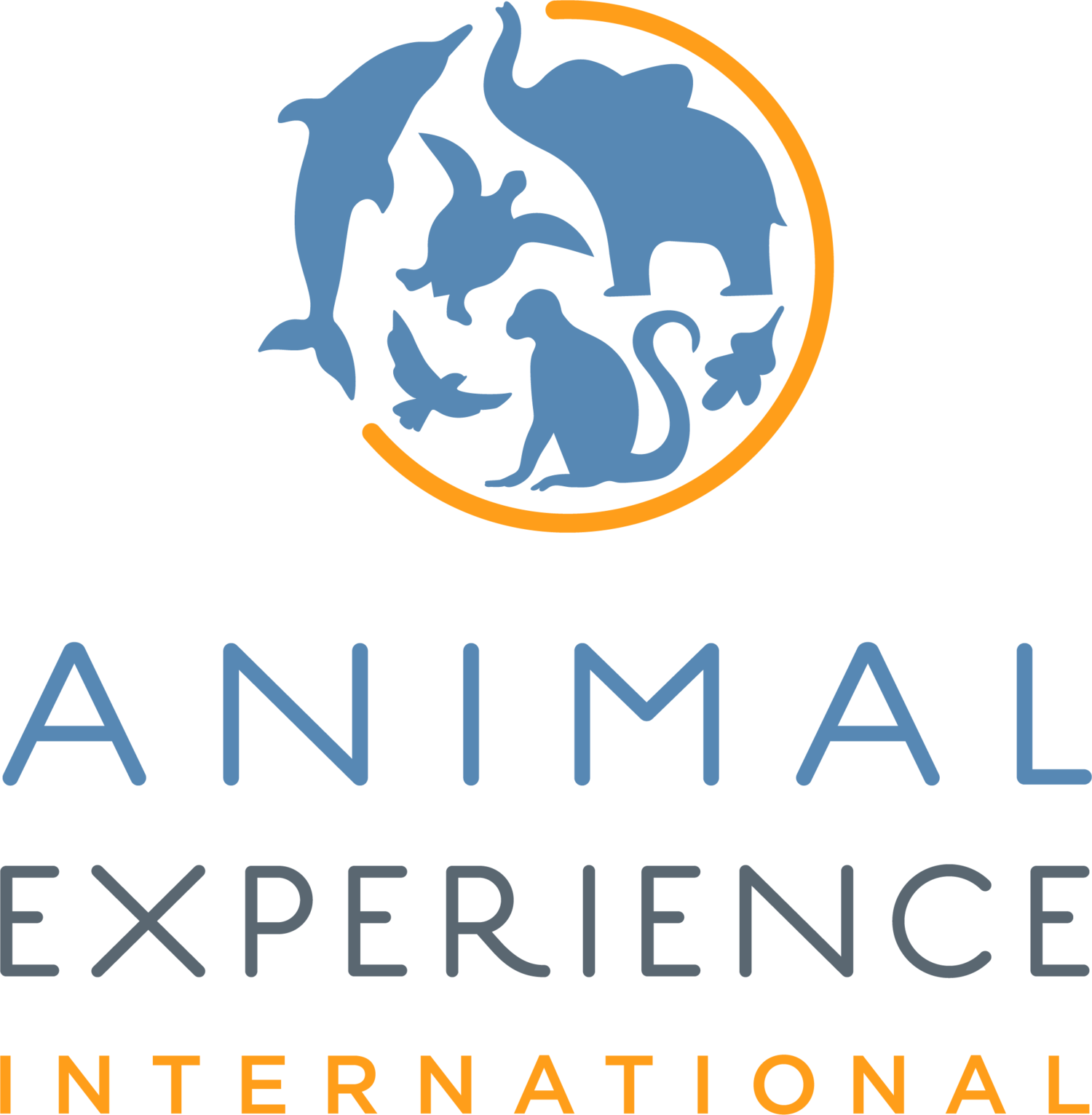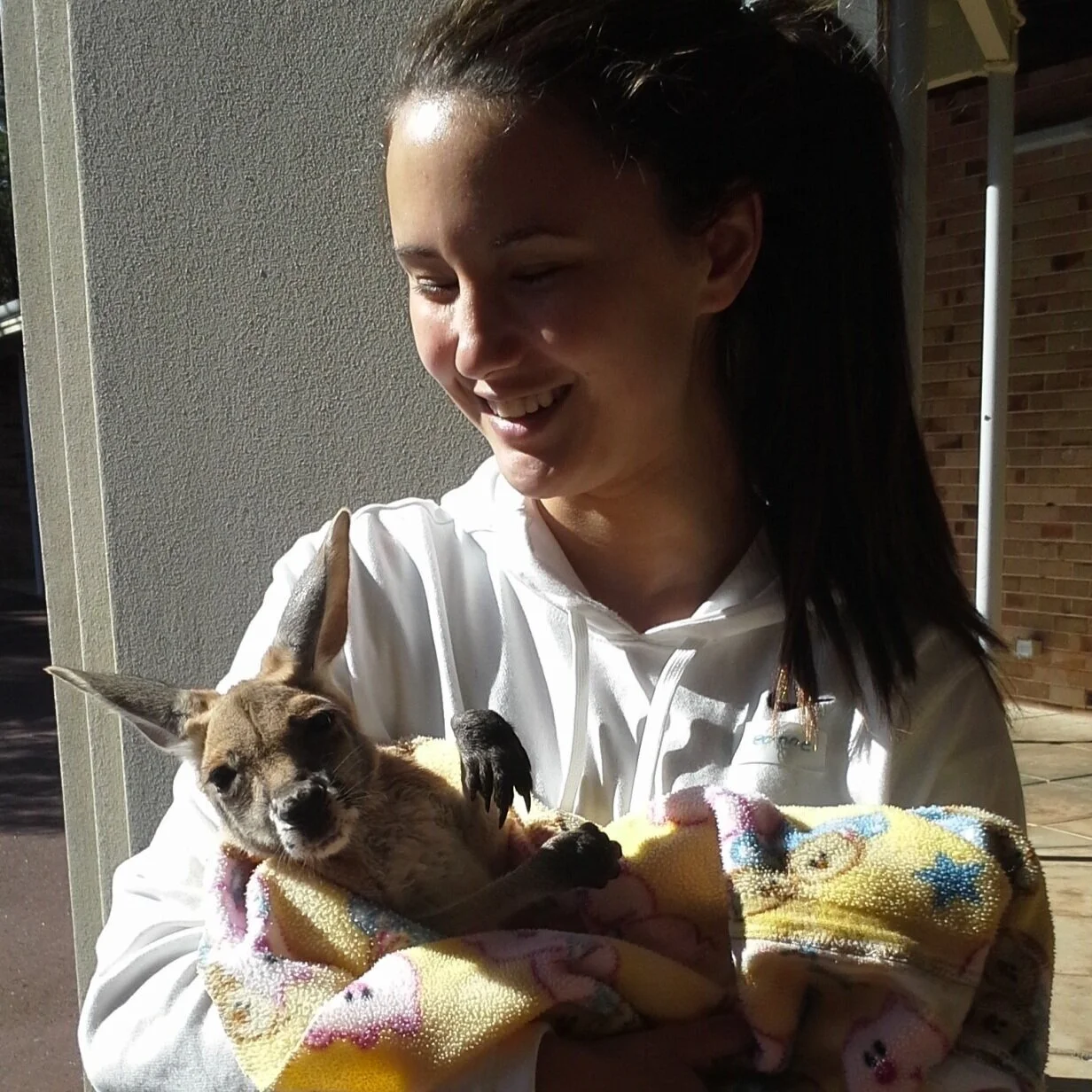Interested in helping our Placement Partners with your Veterinary Technician or Veterinary Nursing degree?
Take your skills somewhere new! Volunteering with animals around the world lets you take a break from your everyday life, or jump-start an exciting new career. Veterinary Technicians and Nurses have a wide range of skills that can be used on all the AEI Experiences. From caring for orphaned animals to collecting samples in the field, Veterinary Technicians have what it takes to make a difference. We need people like you who are passionate about animals and are excited to travel to new places to lend a hand. AEI Experiences offer you the opportunity to work with animals you are comfortable and familiar with or gain experience with new species or new projects. Don’t worry - our partners provide all the training you will need while on placement, allowing you to build on the foundations of your education and experience. Whether you want to learn new things, volunteer in a different capacity, or share your skills – we have the perfect Experience for you!
AEI Experiences are project-based, working with Placement Partners that are well established in their communities. Some placements are very clinical with a veterinary team on site and will use your technical skills. Others are wildlife conservation or rehabilitation programs that will teach you about new species and expose you to field research, rescue and animal care. All are meaningful experiences - the adventure you choose is up to you! If you are interested in volunteering your professional skills, please contact us. We can help you find a placement that will allow you to contribute to a valuable project and provide you with the opportunity to travel and experience the country in which you are living.
Remember, our programs are eligible for Continuing Education and CPD credits with most registered veterinary technician and registered veterinary nursing associations.
Bat Conservation in Australia
Help bat conservation in beautiful northern Queensland.
Here they rescue, rehabilitate and release several species of native Australian bats. The hospital dedicates its efforts to rescuing sick, injured and orphaned bats and treats four species of Australian flying-foxes, including Spectacled Flying-foxes and Little Red Flying-foxes, Tube-Nosed Fruit bats, and even a few microbats such as such as Nyctophilus and Freetail bats.
Starting at $2224 Canadian for 1 week.
Wildlife Rehabilitation in Australia
Join the team and care for wildlife at this Wildlife Rehabilitation Centre in Australia.
This is a wildlife rehabilitation centre located in Western Australia that rehabilitates and treats sick, injured and orphaned wild animals. The centre admits more than 2,400 animals each year and offers expert care and rehabilitation with the goal of releasing the wildlife back to the wild. The main focus of this wildlife centre is a commitment to the protection and welfare of native wildlife.
Starting at $2117 Canadian for 4 weeks.
Wildlife Rehabilitation in Guatemala
Help sick, injured and orphaned wildlife in central Guatemala.
This Wildlife Rescue Centre was originally created for a very specific and urgent purpose: to build a rescue center to care for and rehabilitate wild animals that were being confiscated on the black market by the Guatemalan government. Over the years it has grown into one of the largest and most complex rescue centres in the world. Each year it admits over 500 animals representing more than 40 species of wildlife.
Starting at $1828 Canadian for 1 week.
Sea Turtle Conservation in Costa Rica
Help conserve sea turtles on the Pacific coast.
Nearly all species of sea turtles are endangered – their numbers dropping due to poaching and over-exploitation, climate change and pollution, habitat destruction, accidental capture in fishing gear and trauma from boats. Our partner organization in Costa Rica helps sea turtles through conservation, research, sea turtle rescue and rehabilitation.
Starting at $2011 Canadian for 1 week.
Wildlife Rehabilitation in Thailand
Help care for wildlife rescued in Thailand.
Wild animals in Thailand are experiencing pressures from many sources – loss of habitat, hunting, the illegal pet trade, use of animals by the entertainment industry, and cruelty and abuse by people. In an attempt to help native wildlife this organization runs several projects including hands-on wildlife rescue, wildlife rehabilitation, community education and research. Built on temple land, the centre provides the animals with a huge plot of forest to shelter in during their rehabilitation, or for some to live in for the rest of their lives.
Starting at $1790 Canadian for 1 week.
Dog Rescue in Nepal
Help street dogs in Nepal through rescue, treatment and education programs. There are thousands of dogs living on the streets in Nepal. These dogs suffer from neglect, starvation, injuries and disease. They also pose a health threat to people - every year, around 200 Nepali people die of rabies and 16,000 are treated for dog bites.
Starting at $1884 Canadian for 1 week.
Dog Rescue in Spain
Help rescue and rehabilitate Spanish Galgos.
Help save these amazing dogs! In Spain, galgos – Spanish greyhounds - are used for hunting hares in the countryside. Despite being part of Spanish culture for centuries, as “hunting dogs” galgos are not seen as companion animals and often have difficult lives filled with neglect and abuse. Their speed and agility make them excellent at chasing hares and breeders aspire to create the “perfect” galgos.
Starting at $1473 Canadian for 1 week.
Dog Rescue in Kenya
Help rescue and rehabilitate dogs, cats and farm animals in Kenya.
When people think of Kenya, African wildlife come quickly to mind - but Kenya’s domestic animals also need our help. As in many countries, the unfortunate reality is that domestic and farm animals are often abused and abandoned. Volunteers at this centre help with all aspects of care for the animals – which can number as many as 200 at one time. Daily volunteer duties include the cleaning of dog runs, paddocks, enclosures, and the catteries.
Starting at $1902 Canadian for 1 week.
Wildlife Rehabilitation Medicine Course in Guatemala
Learn about Wildlife Medicine at a Wildlife Rescue Centre in Guatemala.
Nearly all of the animals at the centre have been seized from smugglers and are often very young, needing constant care and attention. The short course in Wildlife Rehabilitation Medicine will teach you about Guatemalan wildlife and how to manage, treat and care for them while in captivity. This will give you the foundations needed to work with these species in a professional capacity. As a veterinary professional you will be in a position to make a difference to wildlife rescue programs around the world.
$3308 Canadian per participant for the two week course.
Wildlife Rehabilitation in Malawi
Help care for wildlife rescued in Malawi.
Malawi is the principle hub for wildlife trafficking in Southern Africa. Wild animals in the region are threatened by this illegal wildlife activity as well as the bushmeat trade, deforestation and other conflicts with people. This organization aims to protect wildlife, provide care for rescued wild animals and empower the guardians of the wild. More than 200 animals are in care at this wildlife centre, with the goal of returning as many as possible back to the wild each year.
Starting at $3690 Canadian for 2 weeks.
Horse Rescue in Spain
Help take care of rescued horses, ponies and donkeys in southern Spain.
This equine rescue centre, located in the Costa Blanca region of Spain, provides an essential service. Their mission is to rescue and rehabilitate abused, neglected and abandoned horses, ponies and donkeys, while campaigning for the better treatment of animals across Spain. They provide each rescued animal with a safe and loving sanctuary for the rest of their lives, either at their facility or through re-homing.
Starting at $1515 Canadian for 1 week.
Shark Conservation in South Africa.
Hands on conservation with marine biologists both in water and in the lab.
If you would like to learn about ocean conservation and receive training in marine research, Shark Conservation in South Africa is the perfect experience for you. This is a hands-on placement that will connect you with shark enthusiasts, students, conservationists and scientists with an interest in shark biology. We are proud to support this shark organization, globally recognized for their work on sharks and ocean ecosystems.
Starting at $2989 Canadian for 2 weeks.














